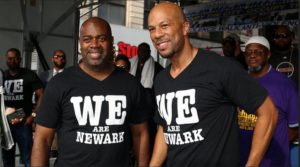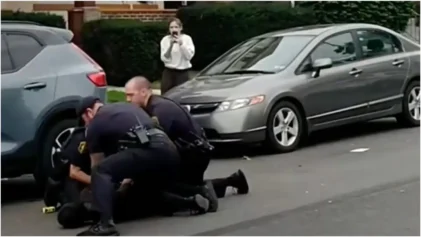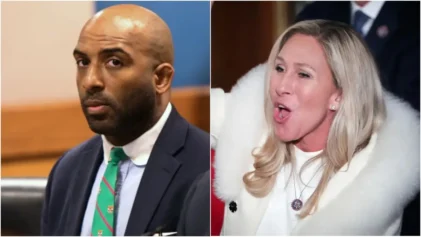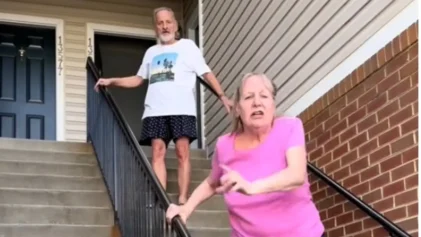
Newark Mayor Ras J. Baraka, son of acclaimed poet and activist Amiri Baraka, organized an “Occupy the City” rally, the first of its kind, in which thousands of residents marched from the city’s five different wards to a central location downtown. Modeled after “Occupy Wall Street,” the millennial movement that used nonviolent protest tactics borrowed from the civil rights movement to advocate social disruption, “Occupy the City” sought to unite residents against violence, crime and despair.
“We will take these blocks back for a few hours,” the mayor stated in his clarion call. “We will shut down the illegal trades at that time.”
The death of Michael Brown, an unarmed 18-year-old accused of stealing cigarillos from a Ferguson convenient store at the hands of a white officer, gave rise to the “Black Lives Matter” movement, which effectively mobilized a new generation of activists against police brutality and state-sanctioned violence.
Over the past year, that rallying cry for social justice has grown in fervor as the Michael Brown story seems to play itself out, over and over again, in different cities, with different actors. The deaths of Eric Garner, Freddie Gray, Walter Scott, Tamir Rice and, most recently, Sandra Bland, just to name a few, serve as painful reminders of the acute risk associated with living in America, while Black.
But while police shootings of unarmed Black victims dominate the national discussion on race, the scourge of inner-city violence continues to eviscerate Black lives. The death toll is up to 155 in Baltimore, where riots ensued following the death of Gray. In Chicago, the third-largest city in the country, the homicide count is at 291. In St. Louis, just outside of Ferguson, there have been 116 murders, and 53 in Newark, including a shooting the day before the rally, blocks away from the meeting point.
Rapper and activist Common, who undoubtedly served as a draw for the city’s younger residents, joined the mayor on stage, speaking about rebuilding “Brick City,” Newark’s unofficial moniker, with love, determination, respect and forgiveness.
Of the latter, the Chicago native reflected on the murder of his neighborhood friend.
“Forgiveness is what I had to work to when I found out about them guys that killed Yusef ,” he told the massive crowd. “I started thinking about, what good is it to hold hate within myself? What am I going to do but continue the cycle?”
Along with a slew of political, religious and community leaders, actor and Newark native John Amos, of Good Times fame, also made an appearance.
“It’s got to start with the kids, and letting them know how valuable they are to us,” he told Atlanta Blackstar.
Newark is not unlike Chicago, or any other Black urban enclave where the majority of residents are trapped in a cycle of poverty, violence and despair. Baraka recently appealed to New Jersey’s attorney general for additional help in fighting crime, but on Saturday, he placed the onus of change in Newark’s hands, urging residents take responsibility for their own neighborhoods.
His fiery speech contained a message of hope, but he didn’t mince words when condemning apathy, relaxed parenting and a youth culture of violence.
“We are human beings, and our children don’t deserve to die on dirty sidewalks, on street corners with blood dribbling from their bodies,” he told residents. “It’s easier to get a Chinese-made rifle than it is to get a decent loaf of bread in this community.”
Police brutality is a longstanding issue in Newark, an abused cab driver ignited the 1967 riots, but police violence and street violence are essentially two sides of the same double-edged sword. Poverty and systemic racism are the real enemy. That’s why, near the end of the rally, Baraka announced that urban America required a complete overhaul.
“When there’s wars in other countries, we rebuild their roads, we give them money for police, we build their hospitals, we build their schools, we rebuild their whole infrastructure. Our cities are crumbling,” Baraka told the crowd, advocating for what he calls an “urban Marshall Plan”– similar to the American-sponsored recovery efforts in war-torn Europe following World War II.
“You’ve got double-digit unemployment in these cities for the last 50 years, systemic and endemic levels of poverty,” he told Atlanta Blackstar. “Those kinds of numbers and statistics, hundreds of Black and brown boys being killed per year means that we need an urban Marshall Plan immediately.”


